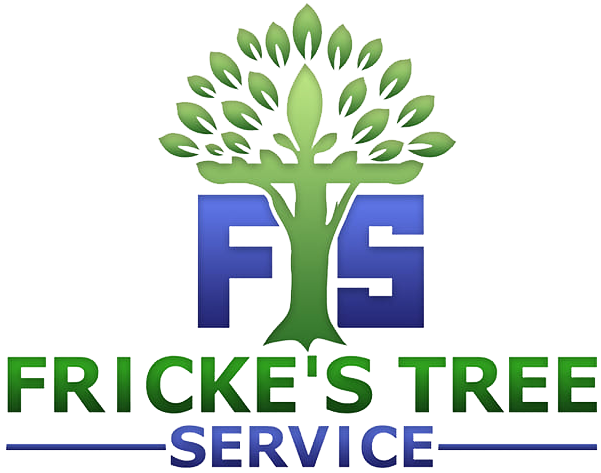Fricke's Tree Service
How Tree Trimming Promotes Healthy Growth and Prevents Property Hazards
Tree trimming is an essential practice that not only enhances the aesthetic appeal of your landscape but also plays a crucial role in promoting healthy growth and preventing potential hazards on your property. Many homeowners may overlook the importance of regular tree maintenance, but understanding its benefits can lead to a safer and more vibrant outdoor environment. In this post, we will explore how tree trimming contributes to the overall health of trees and mitigates risks associated with overgrown or damaged branches.
Understanding the Importance of Tree Trimming
Tree trimming involves the selective removal of specific parts of a tree, such as branches, buds, or roots. This practice is vital for several reasons:- Promotes Healthy Growth: Regular trimming encourages new growth by allowing sunlight to reach the inner branches and leaves, which is essential for photosynthesis and overall vitality.
- Improves Air Circulation: Thinning out dense foliage helps improve air circulation, reducing the risk of fungal diseases and pests that thrive in humid environments.
- Enhances Aesthetics: A well-trimmed tree looks more appealing and can increase the value of your property, making it more attractive to potential buyers or visitors.
- Prevents Hazards: Removing dead or overhanging branches can prevent accidents and property damage, ensuring a safer environment for your family and guests.
How Tree Trimming Promotes Healthy Growth
Healthy trees are vital for a thriving ecosystem. Here’s how tree trimming contributes to their well-being:Encouraging New Growth
When you trim a tree, you stimulate the growth of new branches and leaves. This is because the tree redirects its energy from maintaining old, unhealthy branches to producing new ones. As a result, you’ll notice:- Increased foliage density, which enhances the tree's ability to photosynthesize.
- Brighter and healthier leaves that contribute to the tree's overall vigor.
- Stronger branches that can support more weight, reducing the risk of breakage.
Reducing Disease Risk
Overgrown trees are more susceptible to diseases due to poor air circulation and increased humidity within the foliage. By trimming trees, you:- Allow sunlight to penetrate the canopy, which helps dry out moisture and reduces the likelihood of mold and mildew.
- Minimize the spread of pests that thrive in dense foliage, protecting the tree's health.
- Encourage a balanced growth pattern that can help the tree resist diseases more effectively.
Preventing Property Hazards
Tree trimming is not just about aesthetics; it’s also a safety measure. Here’s how it helps prevent hazards:Eliminating Dead or Weak Branches
Dead or weak branches pose a significant risk, especially during storms or high winds. Trimming these branches can:- Prevent them from falling and causing injury or property damage, which can be costly and dangerous.
- Reduce the risk of power outages caused by fallen branches on power lines, ensuring a more reliable electrical supply.
- Minimize the chances of tree failure, which can lead to catastrophic damage to your home or surrounding structures.
Maintaining Clearance from Structures
Overgrown trees can encroach on buildings, vehicles, and walkways. Regular trimming helps maintain a safe distance, ensuring:- Clear pathways for pedestrians and vehicles, enhancing safety and accessibility.
- Protection for roofs and siding from potential damage caused by branches scraping against them.
- Reduced fire hazards, especially in dry seasons when branches can easily ignite.
Best Practices for Tree Trimming
To maximize the benefits of tree trimming, consider the following best practices:Know When to Trim
Timing is crucial for effective tree trimming. The best times to trim trees are:- Late winter or early spring before new growth begins, allowing the tree to heal quickly.
- After flowering for certain species to avoid cutting off blooms, ensuring you enjoy the full beauty of your trees.
Use Proper Techniques
Using the right techniques ensures that your trees remain healthy. Here are some tips:- Use sharp, clean tools to make precise cuts, which helps prevent damage to the tree.
- Make cuts at a slight angle to prevent water accumulation, which can lead to rot.
- Avoid removing more than 25% of a tree’s canopy in one season to prevent shock and stress.
Consider Professional Help
If you’re unsure about how to trim your trees or if they are particularly large or hazardous, hiring a professional arborist is a wise choice. They can:- Assess the health of your trees and recommend appropriate care.
- Provide expert trimming services that ensure the longevity and health of your trees.
- Advise on ongoing tree care and maintenance, helping you develop a long-term plan for your landscape.
Conclusion
Tree trimming is a vital practice that promotes healthy growth and prevents property hazards. By understanding the importance of regular maintenance, homeowners can ensure their trees thrive while minimizing risks associated with overgrown branches. Whether you choose to trim your trees yourself or hire a professional, prioritizing this task will lead to a safer and more beautiful landscape. Regular tree trimming not only enhances the visual appeal of your property but also contributes to the overall health of the environment, making it a worthwhile investment for any homeowner.SHARE POST
RECENT POSTS
Interested in Our Services?
Get in touch today to discuss your next project and we will happy to answer any questions and provide you with a no-obligation FREE Estimate.







